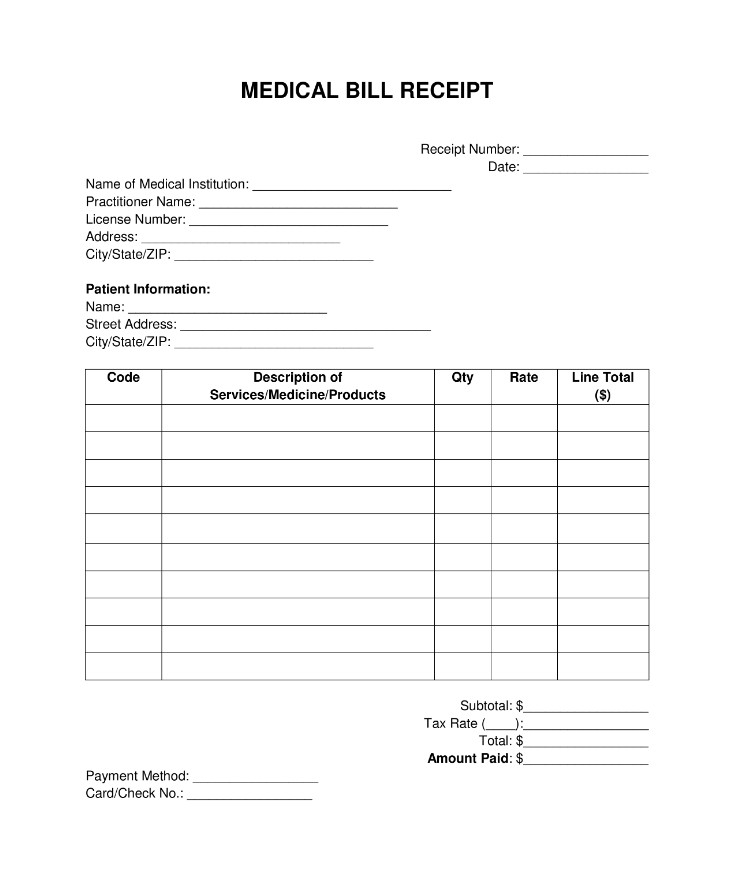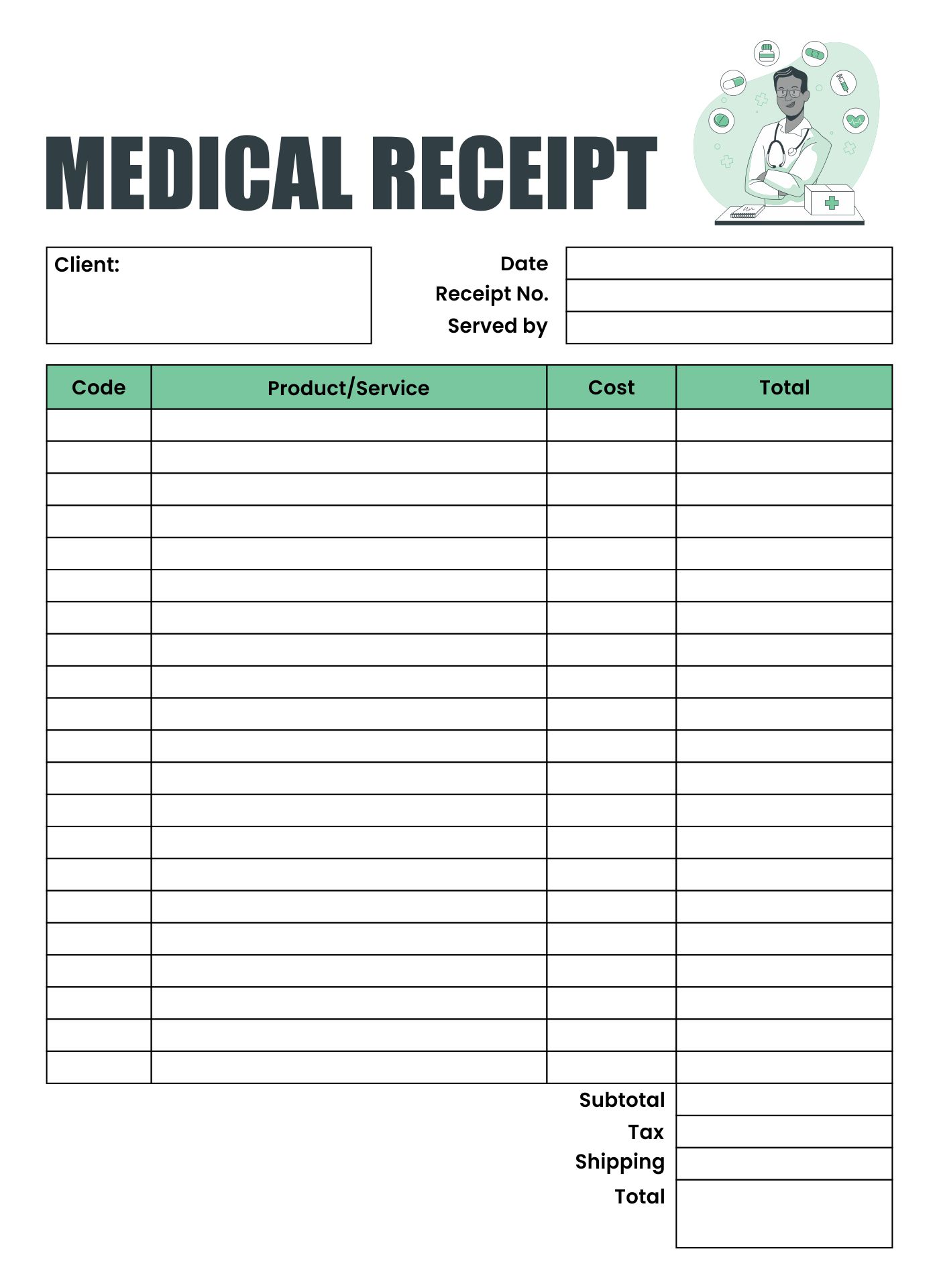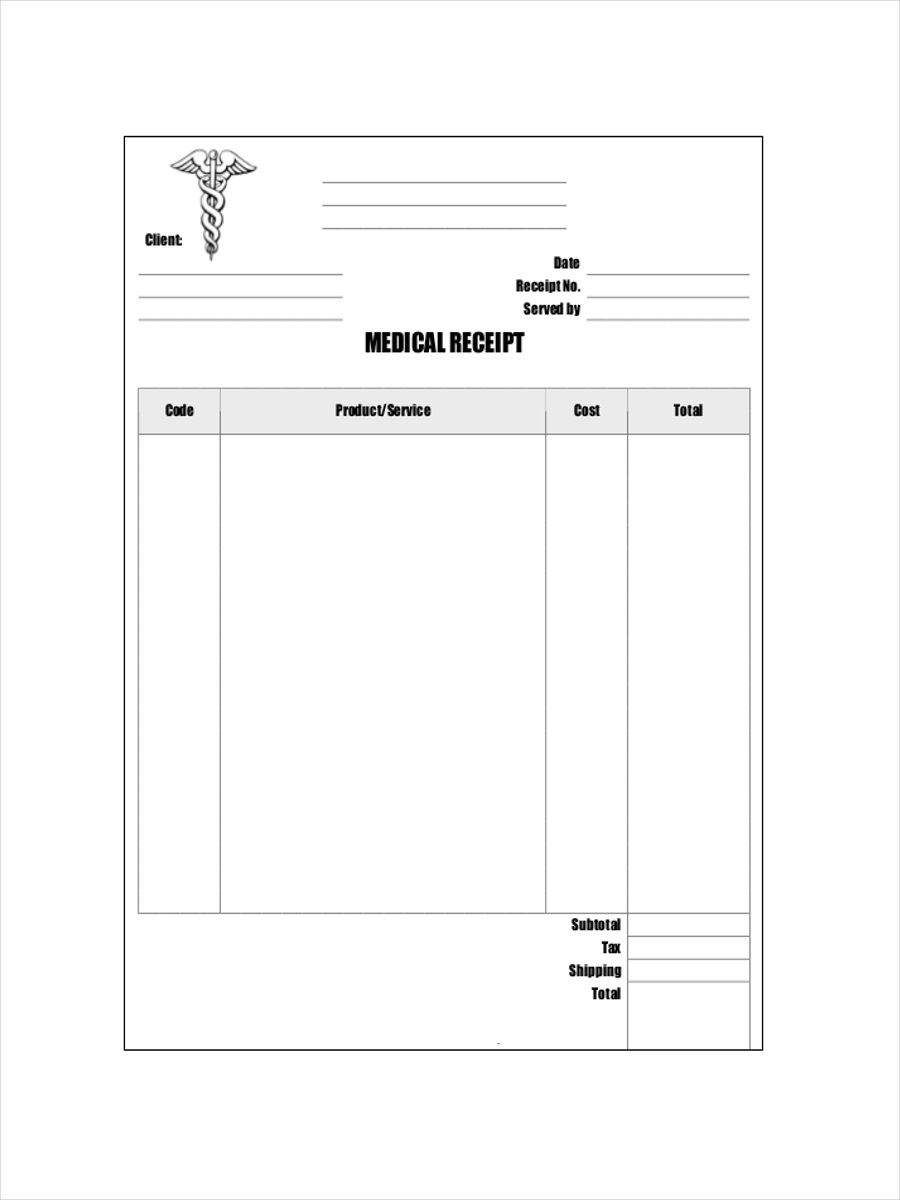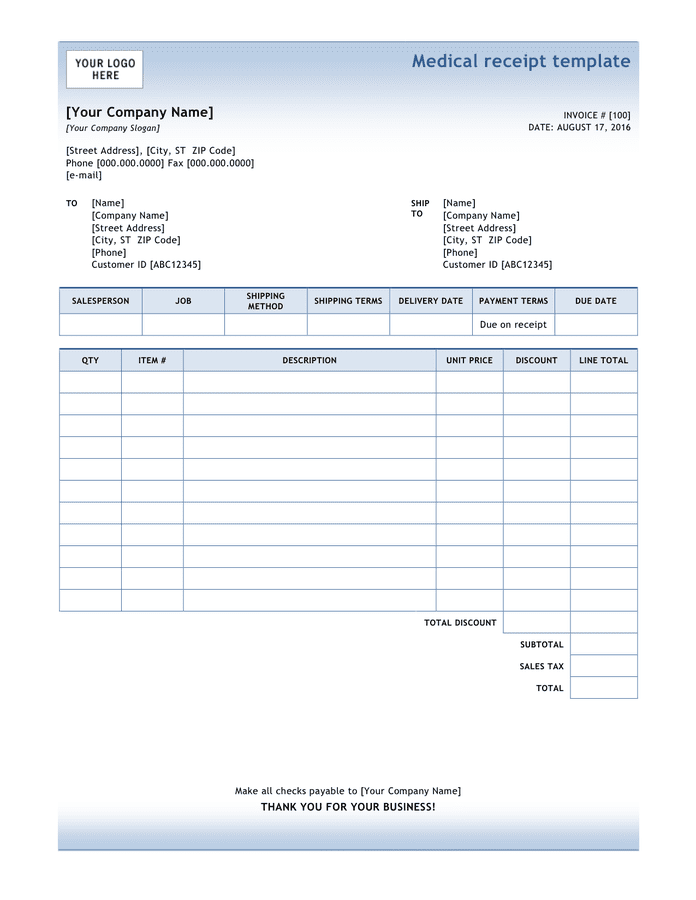
As a business owner in the medical industry, it is crucial to understand the importance of medical receipts. A medical receipt serves as proof of payment for medical services rendered and is essential for both the business and the patient.
In this article, we will explore what medical receipts are, why they are important, and how to create effective and compliant receipts for your medical business.
What is a Medical Receipt?
A medical receipt is a document provided to patients after they have received medical services and made a payment. It includes important information such as the date of service, the name of the medical facility, the services provided, the cost of each service, and the total amount paid. This receipt serves as proof of payment and can be used for insurance reimbursement, tax purposes, and record-keeping.
Medical receipts can be issued for various types of medical services, including doctor’s visits, laboratory tests, surgical procedures, and prescription medications. They are typically generated by medical practices, hospitals, pharmacies, and other healthcare providers.
Why are Medical Receipts Important?
Medical receipts play a crucial role for both the business owner and the patient. Here are some reasons why medical receipts are important:
- Proof of Payment: Medical receipts serve as evidence that the patient has made a payment for the medical services received. This is important for both the patient’s records and the business owner’s financial records.
- Insurance Reimbursement: Many patients rely on health insurance to cover their medical expenses. Medical receipts are necessary for the reimbursement process, as they provide the insurance company with the necessary information to process the claim.
- Record-Keeping: Medical receipts help both the patient and the business owner maintain accurate records of the medical services provided and the payments made. These records are essential for future reference, tax purposes, and audits.
- Tax Deductions: Business owners can deduct their business expenses, including medical expenses, from their taxable income. Medical receipts are necessary to support these deductions and ensure compliance with tax regulations.
- Dispute Resolution: In case of any disputes or discrepancies regarding the services provided or the amount paid, medical receipts serve as a reference point to resolve the issue.
How to Create Effective Medical Receipts
Creating effective and compliant medical receipts is essential for every business owner in the medical industry. Here are some tips to help you create professional and accurate medical receipts:
- Include Essential Information: Make sure to include all the necessary information on the receipt, such as the name and contact information of the medical facility, the patient’s name and contact information, the date of service, the services provided, the cost of each service, and the total amount paid.
- Use Clear and Concise Language: Write the receipt clearly and concisely, using language that is easy to understand. Avoid using jargon or complex medical terminology.
- Ensure Compliance with Regulations: Familiarize yourself with the relevant regulations and guidelines for issuing medical receipts in your jurisdiction. Ensure that your receipts comply with these regulations to avoid any legal issues.
- Keep Copies of Receipts: Make sure to keep copies of all the receipts issued by your medical business. This will help you maintain accurate records and provide copies to patients who may need them in the future.
- Consider Electronic Receipts: In today’s digital age, electronic receipts are becoming increasingly popular. Consider offering the option of electronic receipts to your patients, which can be emailed or sent via SMS.




The Benefits of Well-Maintained Medical Receipts
Well-maintained medical receipts can offer several benefits for your medical business:
- Improved Financial Management: Accurate and well-maintained receipts help you keep track of your income and expenses, allowing for better financial management and planning.
- Efficient Reimbursement Process: By providing complete and detailed receipts, you can expedite the insurance reimbursement process for your patients, leading to increased patient satisfaction.
- Enhanced Professionalism: Well-designed and professional-looking receipts convey a sense of professionalism and reliability, enhancing your reputation as a healthcare provider.
- Reduced Risk of Errors: By maintaining proper records and issuing detailed receipts, you can minimize the risk of errors or misunderstandings regarding the services provided and the payments made.
- Compliance with Regulations: Well-maintained receipts ensure compliance with relevant regulations and guidelines, protecting your business from potential legal issues.
Conclusion
Medical receipts are an essential aspect of running a medical business. They serve as proof of payment, aid in insurance reimbursement, and help maintain accurate records. By creating effective and compliant receipts, you can enhance your financial management, improve the reimbursement process for your patients, and ensure compliance with regulations. Remember to include all the necessary information on your receipts, use clear and concise language, and consider offering electronic receipt options. By prioritizing the creation and maintenance of well-designed medical receipts, you can enhance your professionalism and provide a positive experience for your patients.
Medical Receipt Template Word – Download